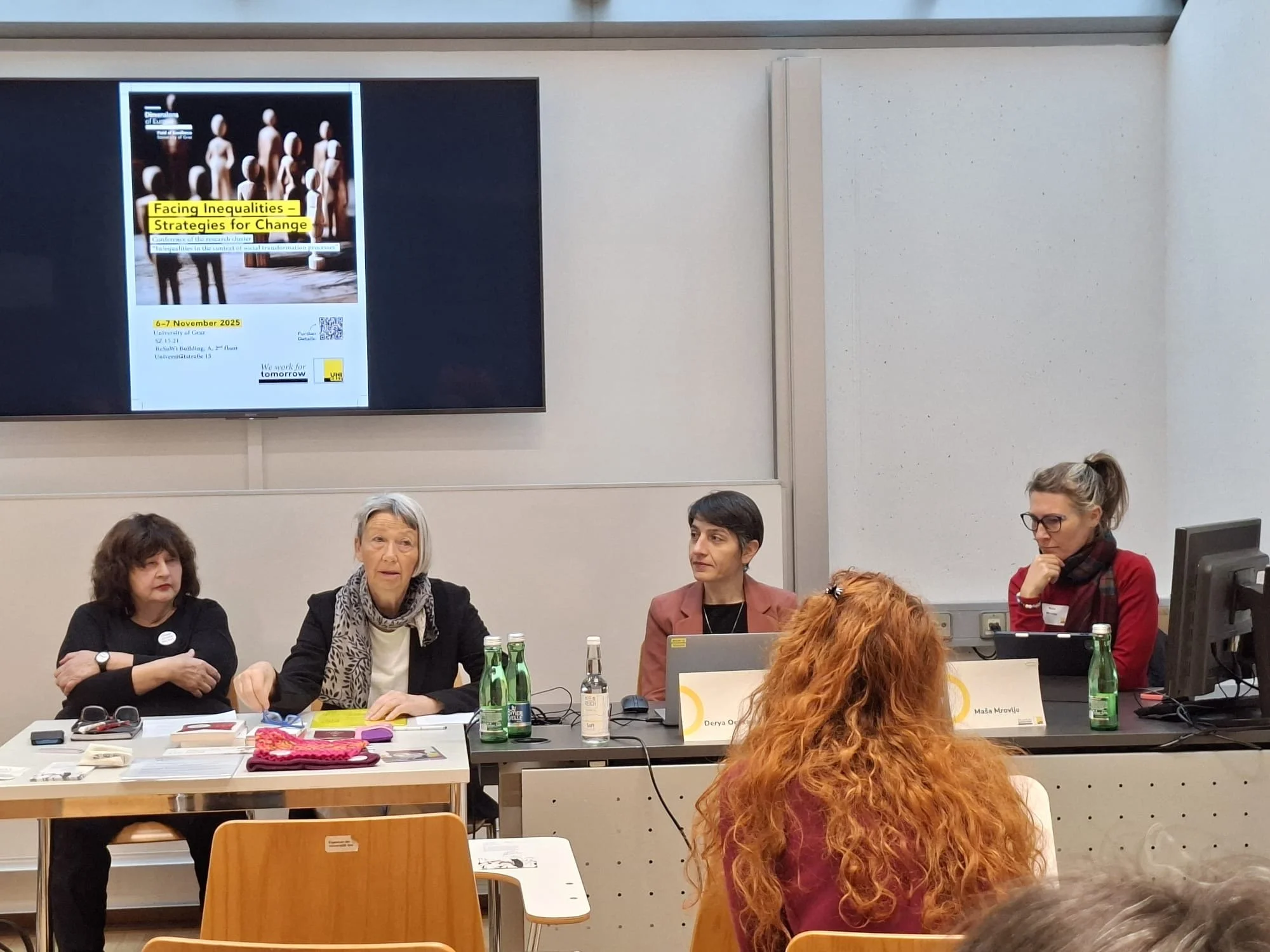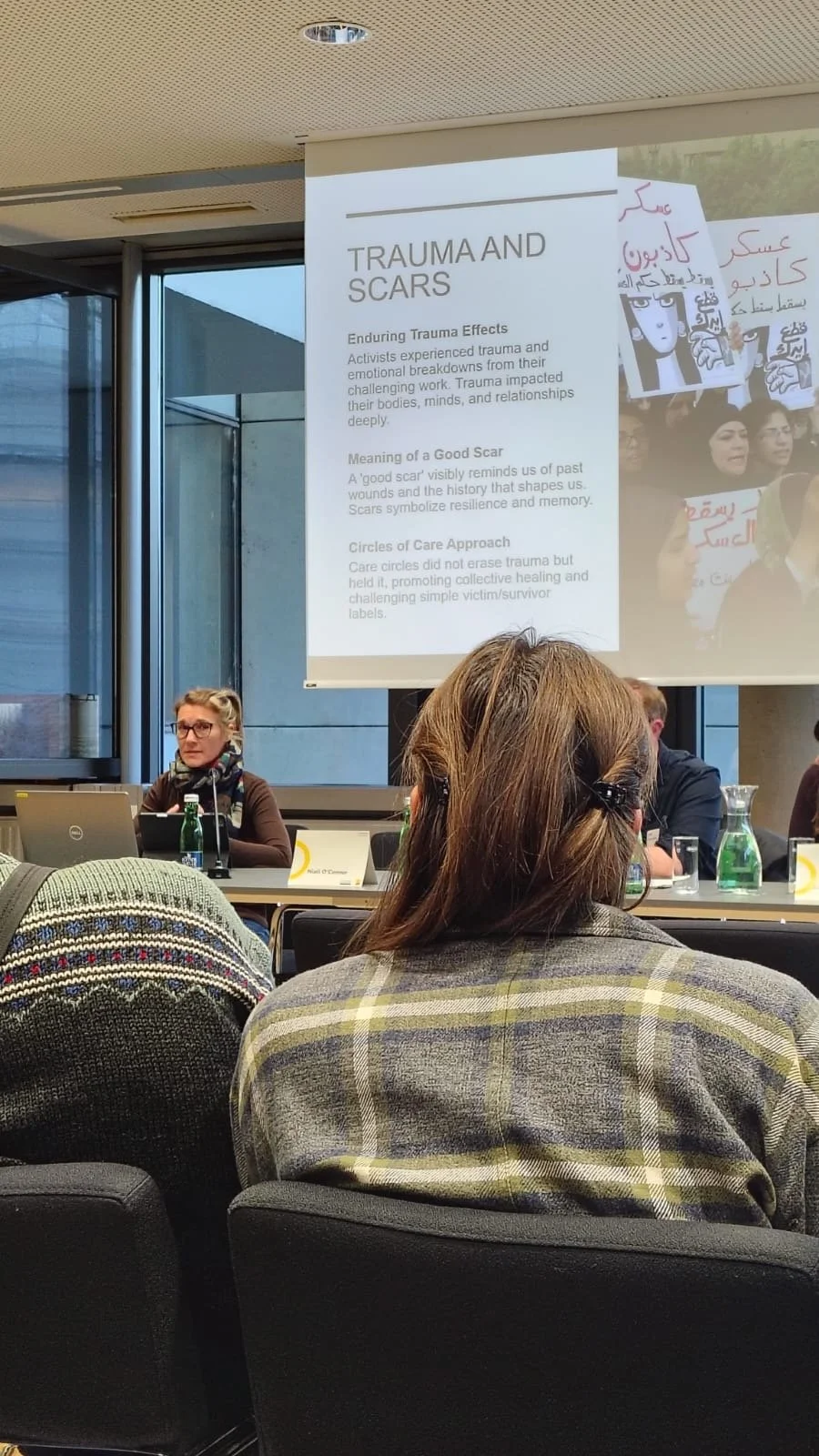Facing Inequalities - Strategies for Change
The international conference Facing Inequalities – Strategies for Change took place on 6–7 November 2025 at the University of Graz. It was full of exciting panels and discussions and featured a fascinating keynote address by Professor Nira Yuval-Davis on the topic of Racism, Bordering and Contemporary Necropolitics.
The panels also included important local activist voices, including Omas Gegen Rechts (Grannies Against the Right).
A panel on Activism and Aging, with Derya Özkaya and Omas Gegen Rechts
I presented a chapter from a book manuscript on activists’ creative responses to disappointment that I am currently working on. The chapter, titled Reviving Solidarity in the Wake of Disappointment, examines the disappointment of marginalized groups within resistance, such as women, whose concerns are often neglected within and subordinated to the overall goals of the movement. I show how marginalized resisters’ disappointment can mobilize new forms of solidarity that challenge both the systemic violence of the repressive regime and the oppressive attitudes within the resistance movement.
To theorise how (women) resisters can reinvigorate bonds of solidarity broken by internal oppression, I draw on Sara Ahmed’s notion of circulation of affect and Audre Lorde’s understanding of vulnerability as a source of resistance.
Ahmed’s notion of circulation of affect explains how affects circulate to produce differentiations between us and them, and how such “circles” of affect can get some bodies “stuck” and enable movement for others. It helps me explore how the practice of breaking oppressive masculine resistance solidarities and forming new safe(er) feminist solidarities in the wake of disappointment is ultimately about intervening in and reframing circles of affect. But how could disappointment break oppressive circles and make new safe(er) circles? Drawing on Lorde, I suggest disappointment can shatter the marginalized resisters’ ideals of the unity of resistance. It can reveal how such supposed ideals of unity are predicated upon a neglect, silencing or exclusion of some individuals’ or groups’ embodied vulnerabilities and thus actively reproduce the oppressive or exclusionary practices of the repressive regime. The marginalized resisters’ affirmation of vulnerability in the face of disappointment, in turn, can disclose new solidarities predicated upon mutual recognition and sharing of one another’s embodied, context-specific vulnerabilities. Arguably, any such new solidarity risks remaining caught in a circularity of affect, producing new exclusions and unequal patterns of interaction. Yet I show how attentiveness to different groups’ embodied vulnerabilities allows the resisters to remain vigilant against this tendency and better able to negotiate the difficulties of forming solidarity across difference.
From my presentation

